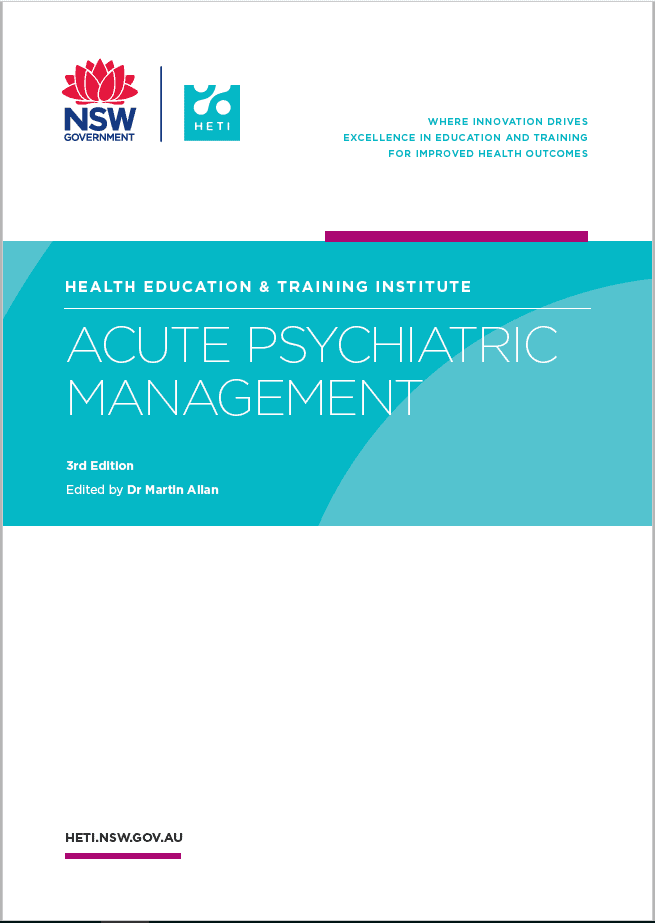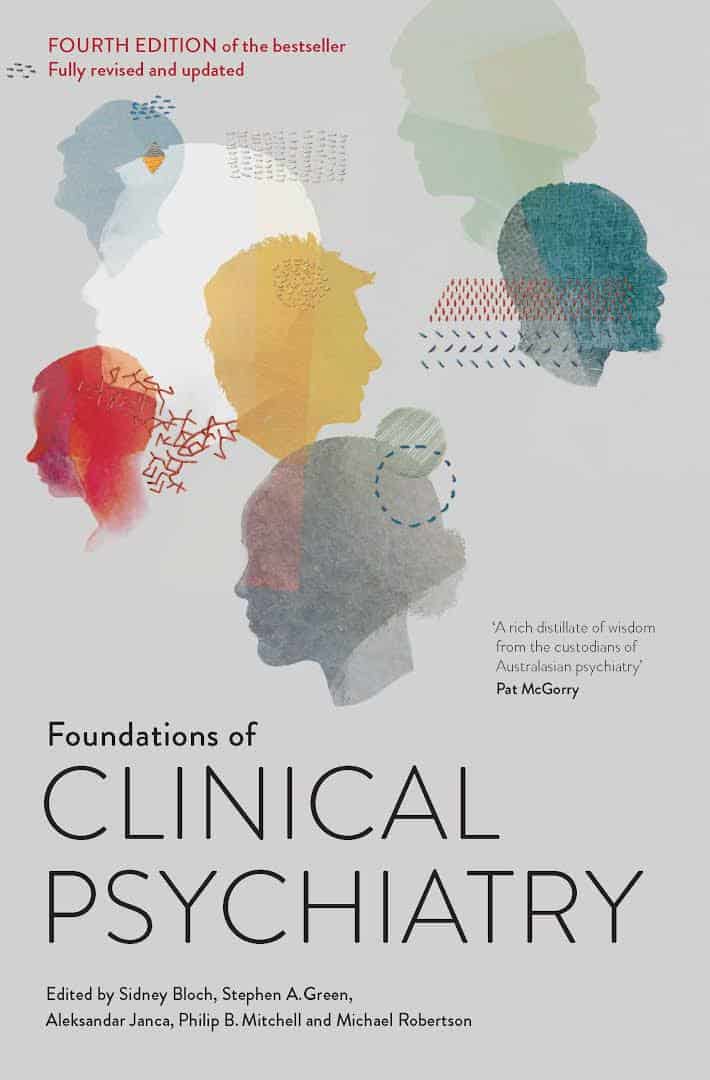Year 5 Psychiatry Syllabus
A week by week experiential and revision guide to ensure that you cover the key knowledge, skill and attitudinal requirements.

Your Check List
- Review the Course Outline.
- Familiarise with Logbook.
- Review the End of Semester Assessment Process.
- Bookmark Meded.Help.
- Discuss your in term assessments with your supervisor.
- If you are struggling to complete the WBAs let a member of faculty know.
Available Courses
Orientation
Weekly Syllabus
Select the Week you are up to and find out what you should be reviewing.
Mental health problems are common in society. The ultimate aim of this final year rotation in psychiatry is to prepare you to be able to effectively assess and manage the common problems that may be encountered by an intern and how to work as a member of a multidisciplinary team in helping people with mental illness.
As an added bonus we hope that your exposure to a multidisciplinary team aids you in the transition to intern where teamwork will be a key aspect of your role.
We recommend you work through these resources in order as you progress through your term.
We would like to thank the Hunter New England Psychiatry Trainees who helped contribute to these educational resources.
Blog Posts to Review:
Key Tasks this Week:
Orientation and Induction
Check in with your team and discuss your logbook
Talk to some patients
Review key components of psychiatric history
Review Mental State Examination
Review Mood Disorders
Review Antidepressants and ECT
During your first week in your psychiatry rotation you should orientate yourself to your new team. Discuss with your supervising consultant and registrars your learning goals. Make sure you will be able to fulfil all the required tasks in your logbook.
There will be an orientation session at your respective clinical school site.
During your first week you will probably recall some of the previous lessons you have had in relation to psychiatry and mental health as well as some of the interactional skills training. These will come in handy as you progress during your term.
During this first week we suggest you become comfortable with interviewing people with mental health problems. Don’t worry too much about gathering information at this stage focus more on your style of questioning and eliciting key mental state findings.
There are a number of conditions in psychiatry. As an intern you will not be expected to know about all of these, however, there are some major categories that you should be familiar with.
We suggest you review mood disorders, noting that in the DSM-5 Depressive Disorders and Bipolar Disorders are now in separate categories.
Blog Posts to Review:
Key Learning Tasks:
Review Psychotic Disorders, in particular Schizophrenia
Review Antipsychotic Medications, in particular their general mechanism of action and the types of side effects and safety issues
Understand the Principle of Least Restrictive Care which underpins the majority of mental health legislation in the world
Understand the two types of definitions of Mentally Ill and Mentally Disordered under the NSW Mental Health Act
Practice “Formulating” your cases using the Biopsychosocial Model (this will help you in your presentations of cases)
Do a MiniCEX in order to obtain feedback on your performance with patients
During this week we recommend you review the psychotic disorders. This will also enable you to review mental health ethics and the Mental Health Act.
Blog Posts to Review:
Key Learning Tasks:
Review the main anxiety disorders
Try to interview at least one patient with an anxiety problem (hint about 80% patients with depression have an anxiety component)
Review main treatments for anxiety disorders (e.g. psychological therapies & antidepressants, understand the limited role for benzodiazpines and antipsychotics)
Learn about de-arousal techniques, graded exposure, activity scheduling and sleep hygiene
Practice presenting patients to members of your team using the CBD format
During this week we encourage you to review anxiety disorders and consider the role of psychological therapies and psychosocial treatments in the management of and recovery from mental illness.
Blog Posts to Review:
Key Learning Tasks:
- Complete the RANZCP eLearning module on interviewing an Aboriginal person
- If possible interview an Aboriginal person in relation to their mental health and well being
- Review Personality Disorders, in particular Borderline Personality Disorder and Antisocial Personality Disorder
- Review Post Traumatic Stress Disorder
- Interview someone with either a Personality Disorder or PTSD and consider the acute and long term risk factors and role of trauma
- Practice documenting patients the way you will be expected to document when you are an Intern, for e.g. assist with completing a discharge summary or file note
This week the focus is on development and culture within mental health. Please bear in mind that part of your examination will include an assessment of your understanding of the role of culture in mental illness. We will be utilising Aboriginal culture as our basis of understanding the role of culture in mental health.
You should also review development and personality, as well as the role of trauma and risk.
We are already halfway through our term and have covered quite a lot.
Blog Posts to Review:
This is our final week of new learning. Next week will be a consolidation and preparation week.
The focus this week is on conditions that are more likely to be seen by interns in the general hospital or general practice setting.
Learning Outcomes:
- Review cognitive testing and delirium (note that the majority of patients with delirium are “quietly” confused)
- Perform cognitive testing on at leat one patient, for e.g. the MMSE or the MiniCOG or the MOCA and discuss your findings with someone
- Review Eating Disorders
- Review Risk Management
- Practice performing a handover for a variety of scenarios using one of the standard formats for e.g. ISBAR
This is our final week of new learning. Next week will be a consolidation and preparation week.
Blog Posts to Review:
Learning Outcomes:
- Review any gaps in learning
- Complete any outstanding tasks
- Prepare for exams
Congratulations on completing your Psychiatry Rotation.
We do hope that you have had a good experience and an opportunity to prepare yourself for internship next year.
Don’t forget to get your supervisor forms and logbooks completed and returned.
For those of you interested in knowing a bit more about what its like to be a psychiatrist here are a few links:
Psychiatry at NSW Health Map My Health Career
RANZCP: Why Choose Psychiatry as a Career?
Hunter New England JMO Training Page
Blog Posts to Review:
Resources
Recommended Resources for your studies
VIDEOS
TEXTS

HETI Acute Psychiatric Management
Now in its 3rd edition. A great foundational free resource. Written by NSW authors.

